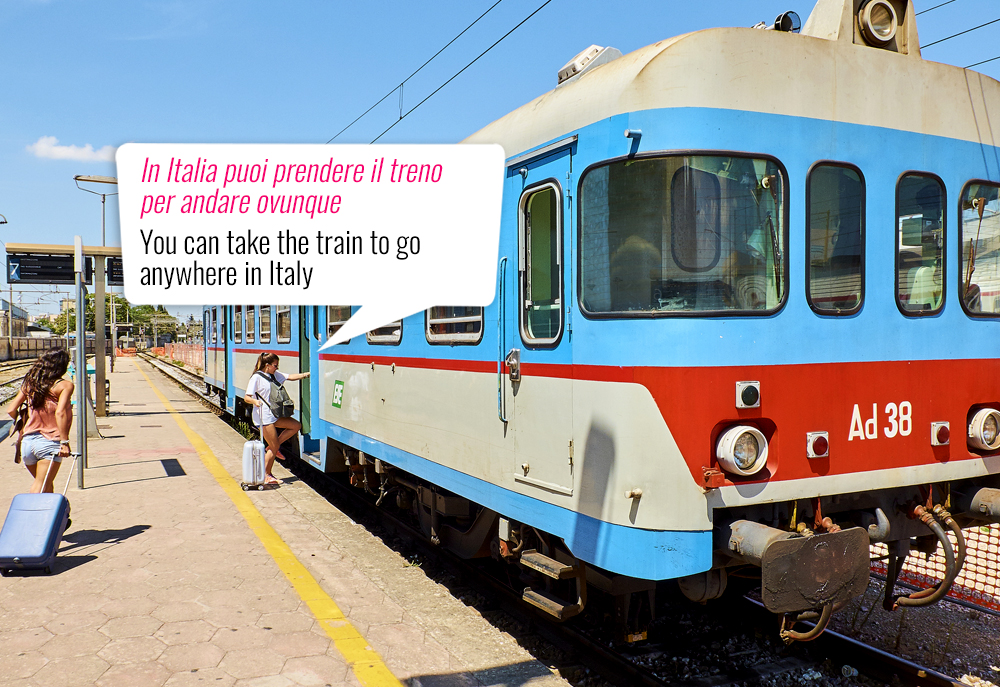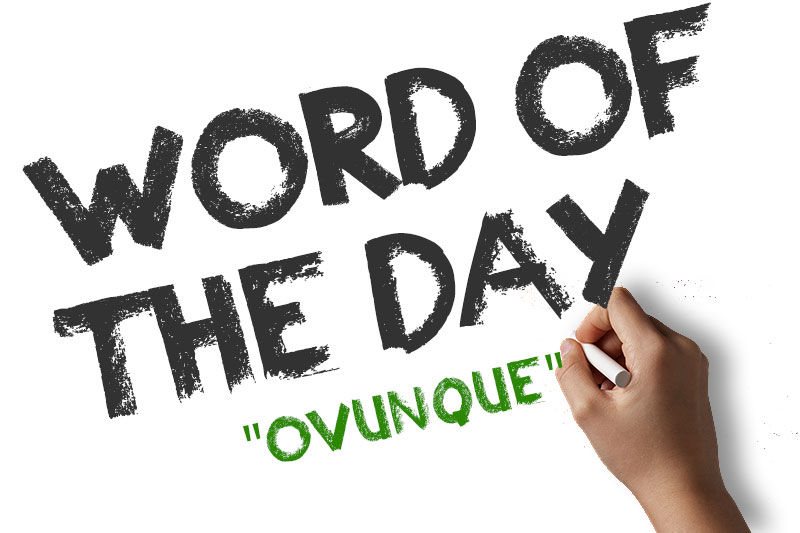Ovunque (oh-voon-kooaih) means anywhere (or everywhere), or wherever in English and appeared for the first time in the 13th century. It translates the ideas of “wherever you go,” “in every place,” and it is formed by the adverb ove, an old fashioned version of dove, “where,” and the suffix –unque, which we use in many compound adverbs and pronouns, with the meaning of “any.” And that’s how “ovunque” exists: as the union and “where” and “any.”
I am sure that, if you think about it a second, you can come up with other words that end in –unque: comunque (however)? Yes! Chiunque (whoever)? Yes again! Did I hear qualunque (whichever)? You’re right!
In Italian, we used ovunque ovunque… everywhere! It is common and easy, we just love it: ovunque vada, riesce a trovare nuovi amici (“wherever he goes, he makes new friends”). But also: sono spaventata, quel tipo mi segue ovunque io vada! (“I am afraid, that guy follows me everywhere I go!”).
We have also a slightly more modern version of it, dovunque, which means the exact same thing and it’s formed by the union of dove (where) and our little suffix –unque. Right, I said “more modern,” but we are still talking hundreds of years ago, because dovunque entered our vocabulary in the 14th century! It just sounds more modern, because we use “dove” for “where” much more than “ove,” a pretty old fashioned – albeit elegant – term.
- Ovunque tu sia nel mondo, troverai un ristorante Italiano!
- Wherever you are in the world, you’ll find an Italian restaurant!

- Ho chiesto ovunque, ma non sono riuscito a trovare quel libro.
- I asked everywhere, but I couldn’t find that book.

- In Italia puoi prendere il treno per andare ovunque.
- You can take the train to go anywhere in Italy.




























